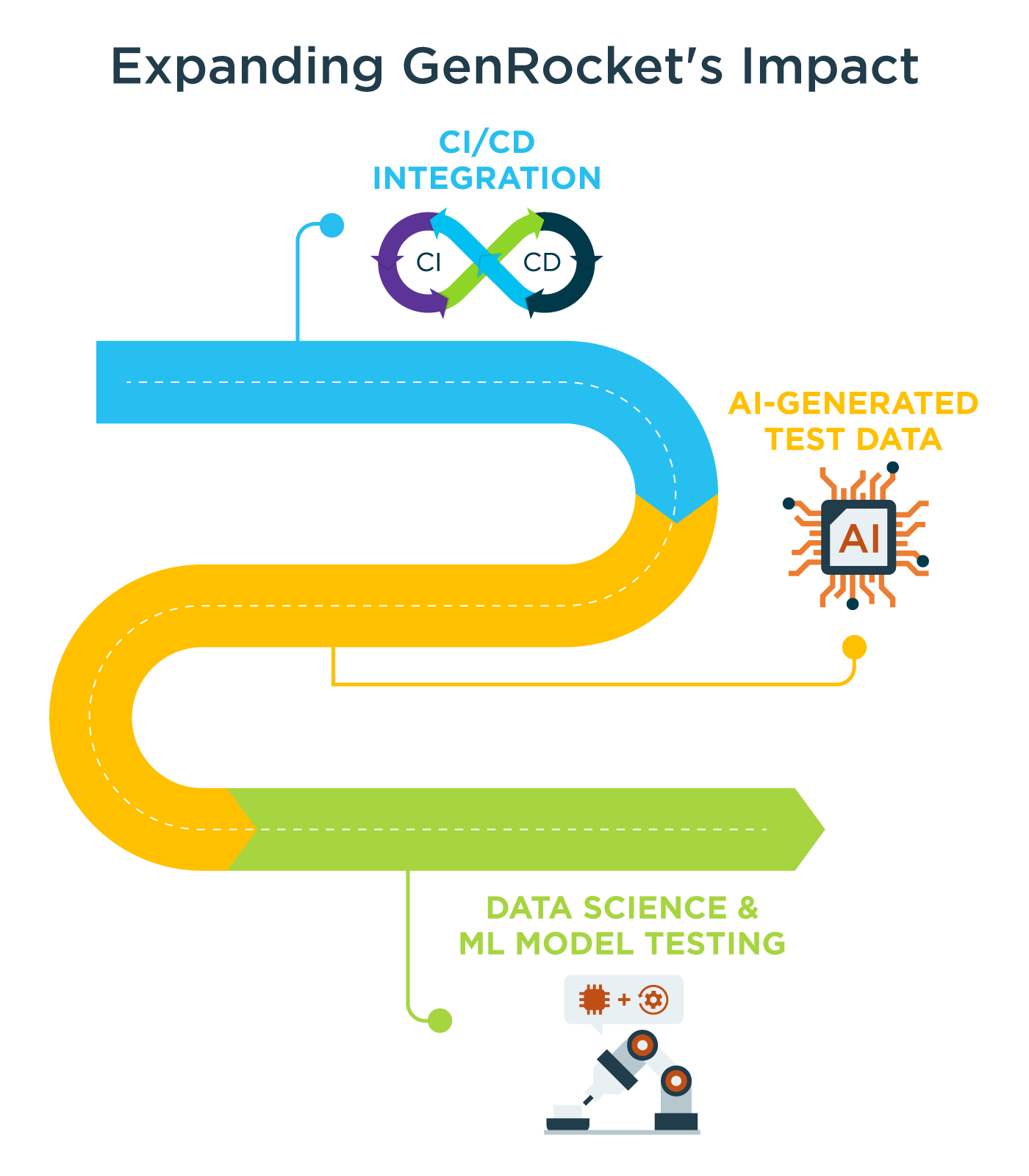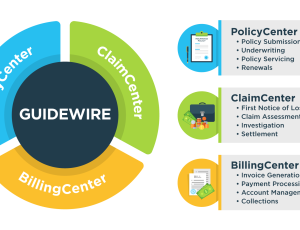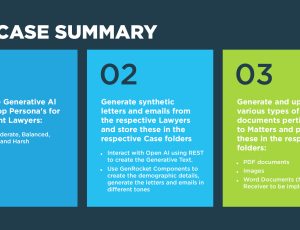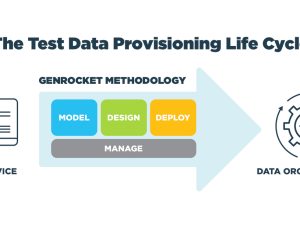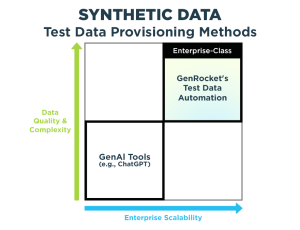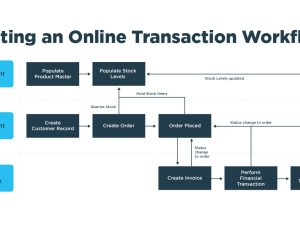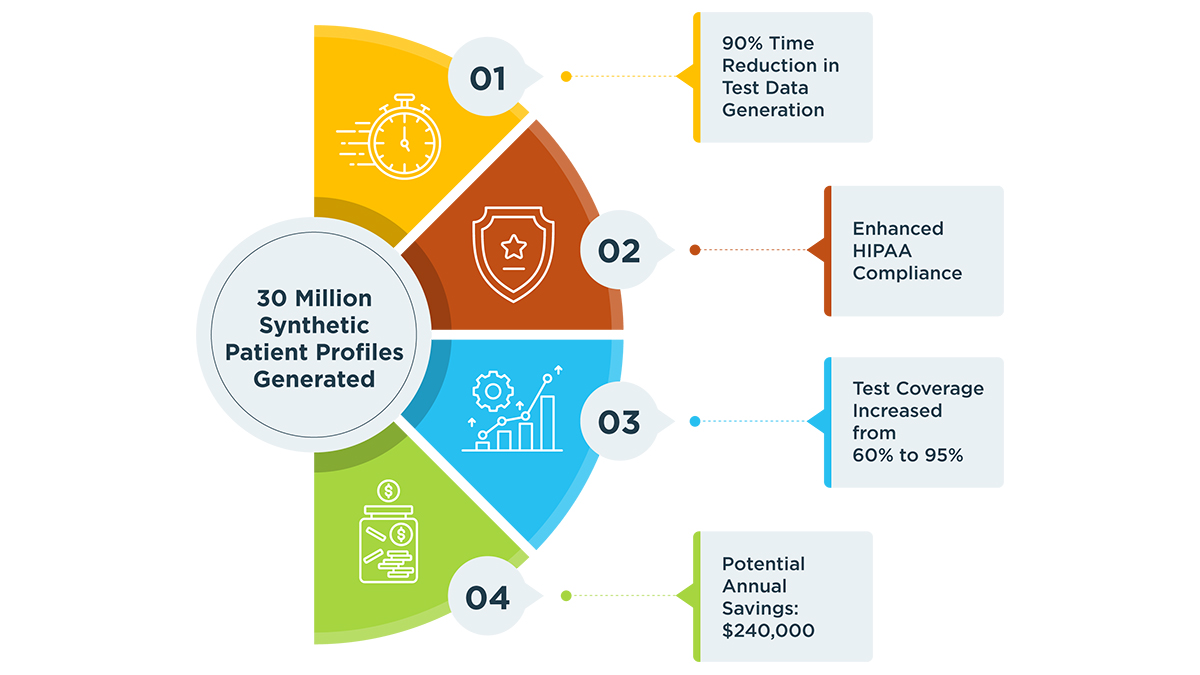
Leading Healthcare Diagnostics Provider Revolutionizes Patient Registration System Testing
Executive Summary
A Fortune 500 company and world leader in diagnostic testing services faced significant challenges in testing their Patient Registration System (PRS). Manual data creation processes and limitations on using production data hindered their ability to conduct comprehensive performance testing in real-world conditions.
By implementing GenRocket’s Test Data Automation platform, they generated 30 million synthetic patient profiles. This allowed for a significant improvement in test coverage, enhanced system performance, and better compliance with healthcare regulations. The improvements included a 90% reduction in test data generation time, increased test coverage from 60% to 95%, and potential cost savings of up to $240,000 annually.
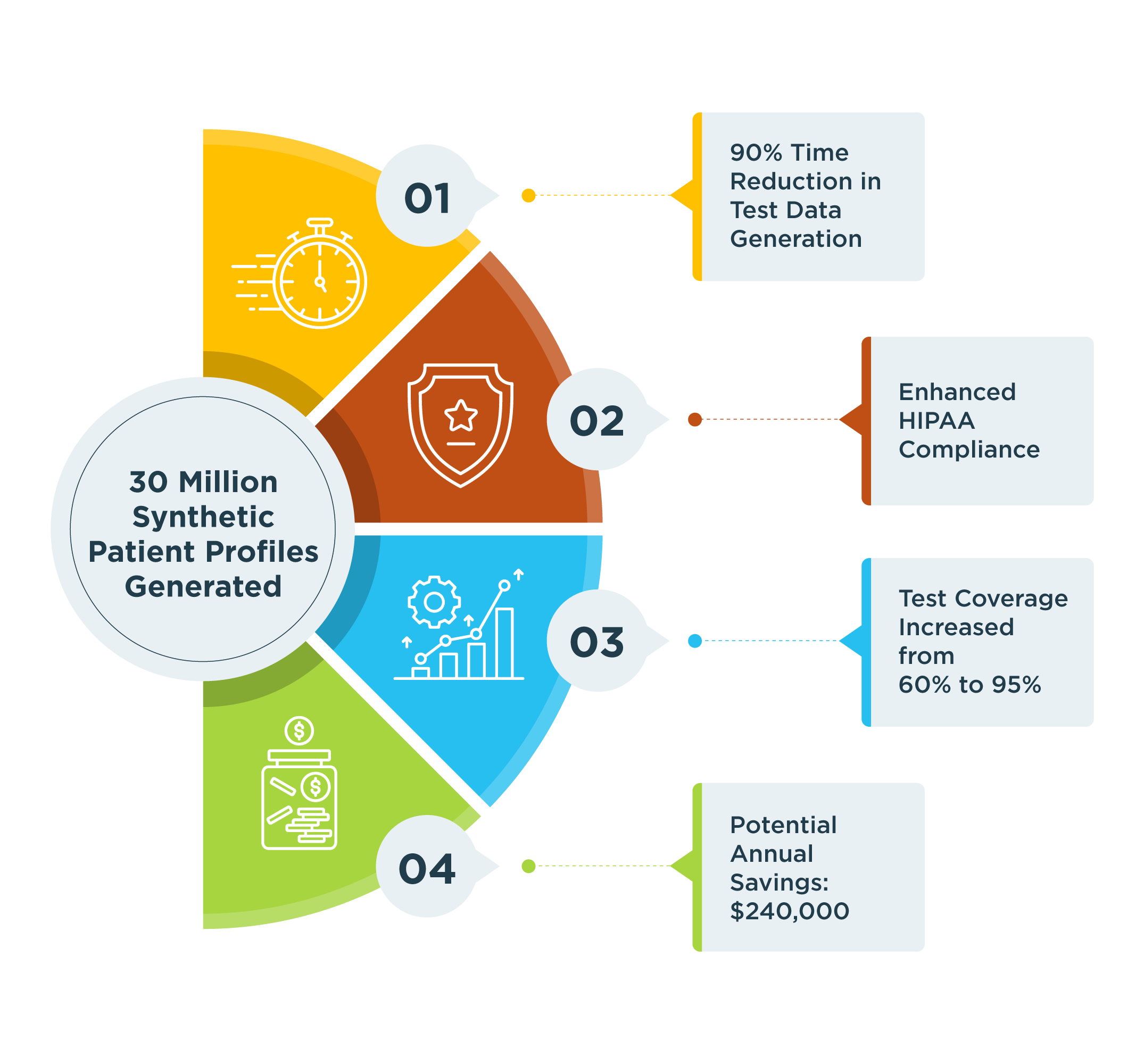
Context & Overview
This healthcare diagnostics leader serves one in three adult Americans and half the physicians and hospitals in the United States annually. Their patient registration system is a critical application that handles patient demographics, appointment scheduling, and integrates with numerous downstream systems.
As a cornerstone of the company’s operations, ensuring the system could handle high volumes of data and maintain performance under stress was paramount — the ability to test it under realistic and high-volume scenarios was essential to ensuring reliability and security.
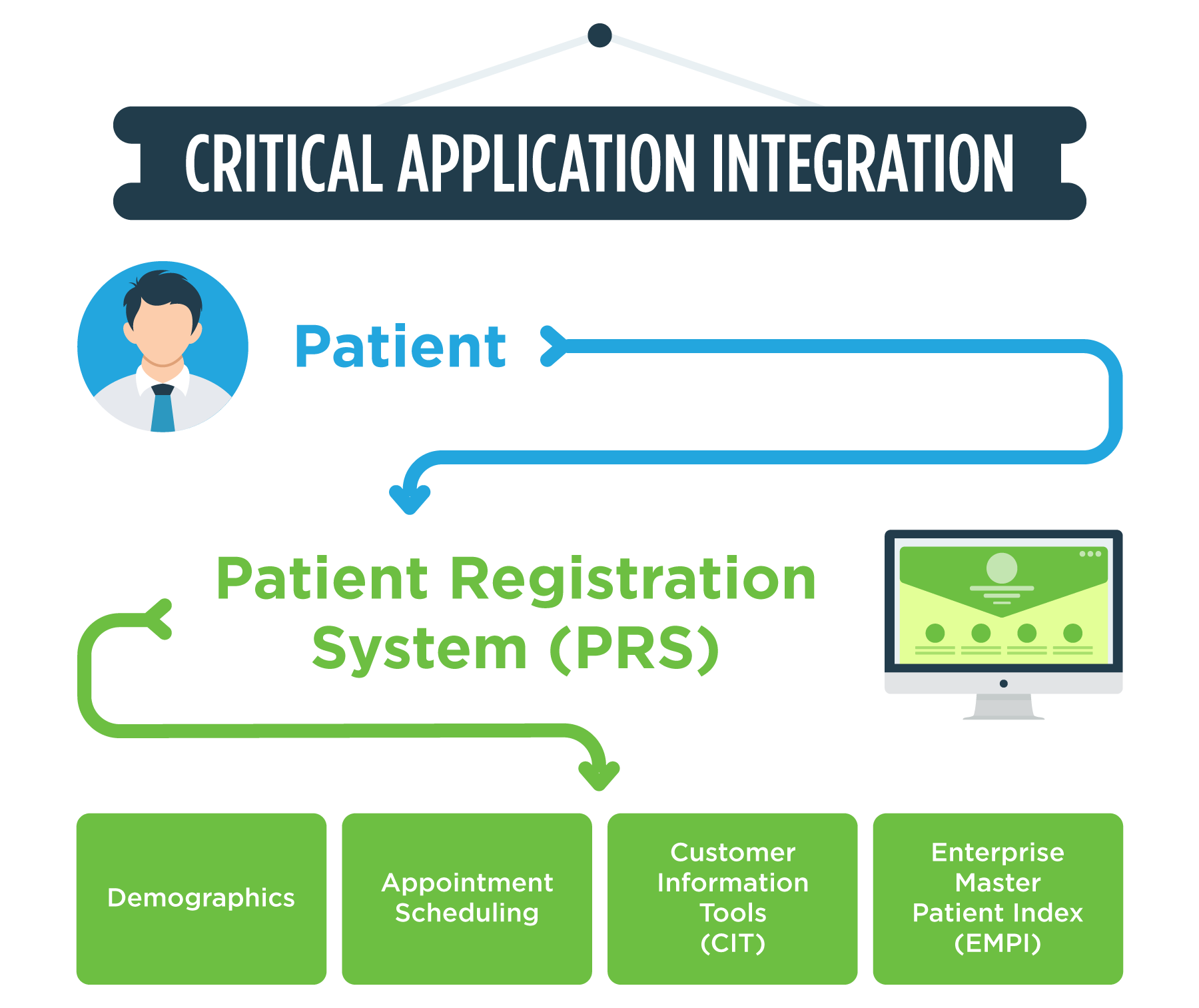
Quality Engineering Challenges
The quality engineering team encountered several obstacles in their testing process:
- Manual Data Creation: Time-consuming and limited in scope, typically producing only 10-15 records at a time, significantly slowing down testing cycles.
- Production Data Usage: Security and compliance risks, particularly with HIPAA regulations, restricted using actual patient data in non-production testing environments.
- Limited Data for Performance Testing: The team struggled to generate the volume and variety of data needed for comprehensive performance testing, especially for edge cases and rare scenarios.
- Inconsistent Data Management: Various teams lacked standardized test data management processes across multiple application teams, leading to inconsistencies and inefficiencies.
These challenges resulted in inadequate test coverage, potential security vulnerabilities, and an increased risk of performance issues in production.
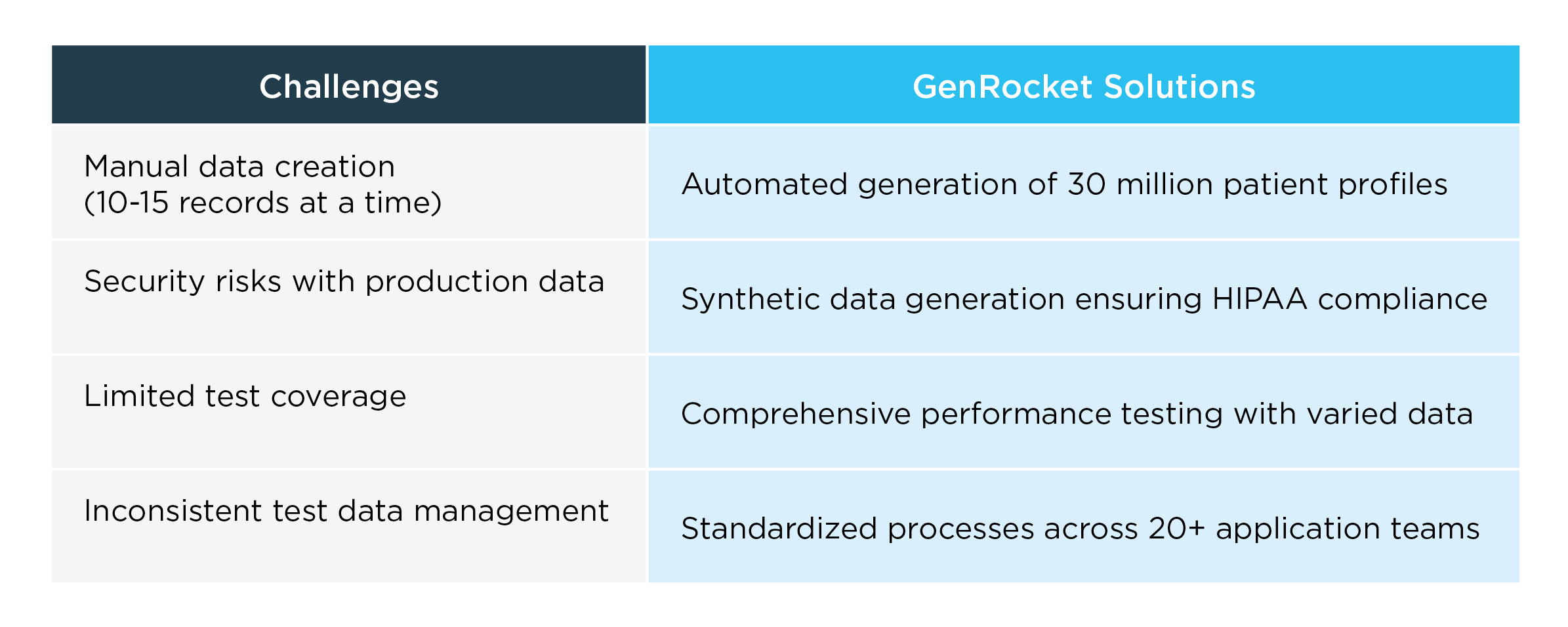
The GenRocket Solution
GenRocket addressed these challenges by providing:
- Synthetic Data Generation: GenRocket enabled the client to create 30 million realistic patient profiles — complete with names, addresses, contact information, and other demographic data, helping to simulate authentic user conditions.
- Data Modeling: By importing the database schema in a lower environment for security purposes, the client was able to model the data structure and apply rules based on application development team documentation.
- Scenario Creation: The team primarily used GenRocket’s intelligent data generators to design complex, realistic and executable Test Data Cases — allowing them to accurately simulate real-world patient registration workflows and data relationships, ensuring thorough testing of the system’s intricate interactions.
- Data Variety Control: GenRocket allowed the client to set specific rules for data generation, such as age ranges, gender distribution, and status indicators, ensuring a reliable representative mix of patient profiles.
- Integration with Test Environments: The synthetic data was seamlessly integrated into the client’s test databases and downstream systems, including customer information tools and a master patient index.
Results & Benefits
The implementation of GenRocket’s solution yielded significant improvements:
- Increased Test Coverage: The ability to use 30 million synthetic profiles increased test coverage from 60% to 95%.
- Time Savings: Test data generation time reduced by 90%, saving approximately three weeks of manual effort per team per project (about 120 hours per resource).
- Cost Efficiency: Based on an estimated billing rate of $100 per hour, the time savings translated to approximately $12,000 per team per project. With 20 application teams, this amounts to potential annual savings of $240,000.
- Enhanced Data Security: By eliminating the use of production data in test environments, the risk of data breaches was significantly reduced, ensuring HIPAA compliance.
- Improved Defect Detection: Early defect detection increased by 40%, allowing teams to uncover issues earlier in the development cycle.
- Streamlined Processes: GenRocket helped standardize test data management processes across more than 20 application teams, reducing inconsistencies by 70%.
- Performance Validation: Load testing capabilities improved by 200%, allowing the company to validate the Patient Registration System’s performance under realistic load conditions of up to 100,000 concurrent users.
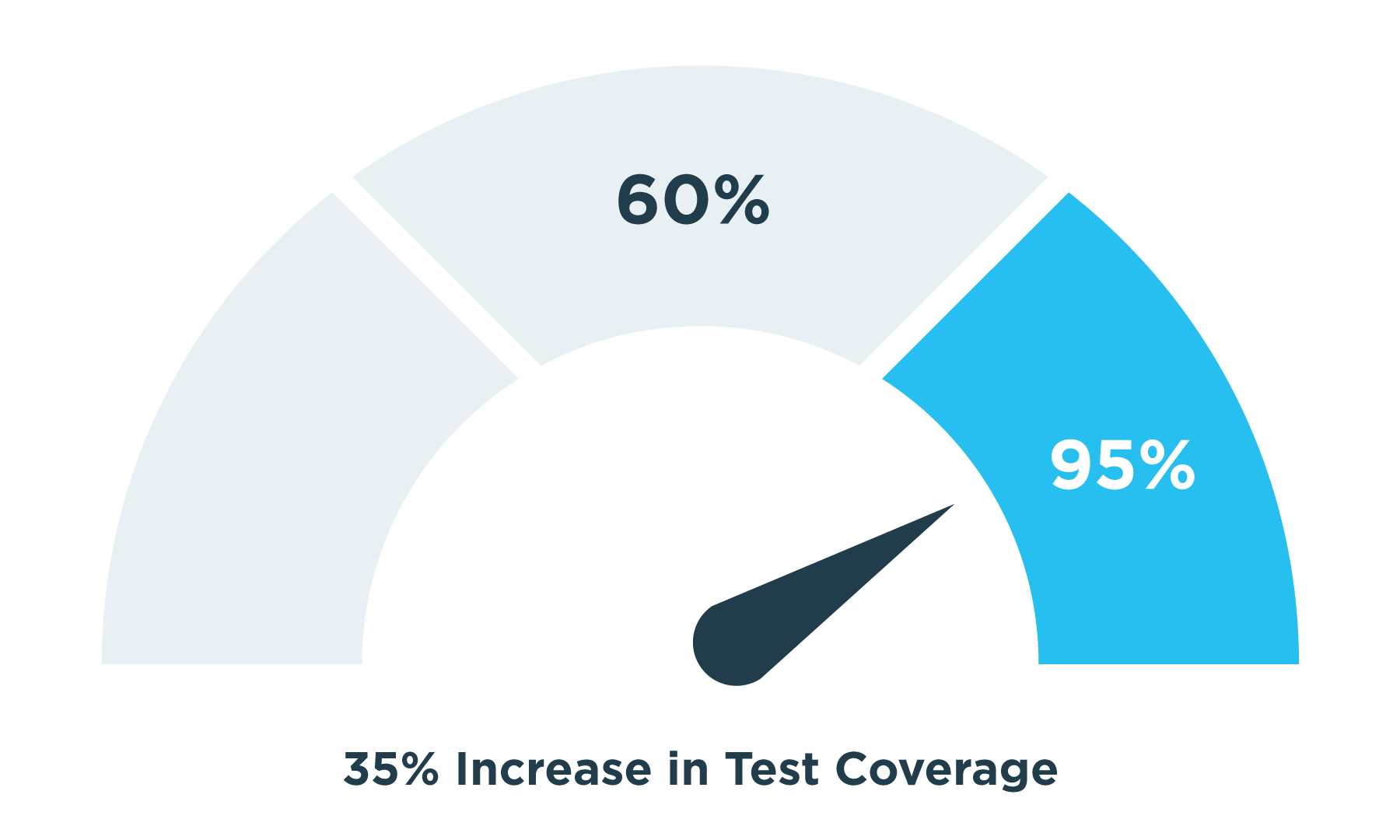
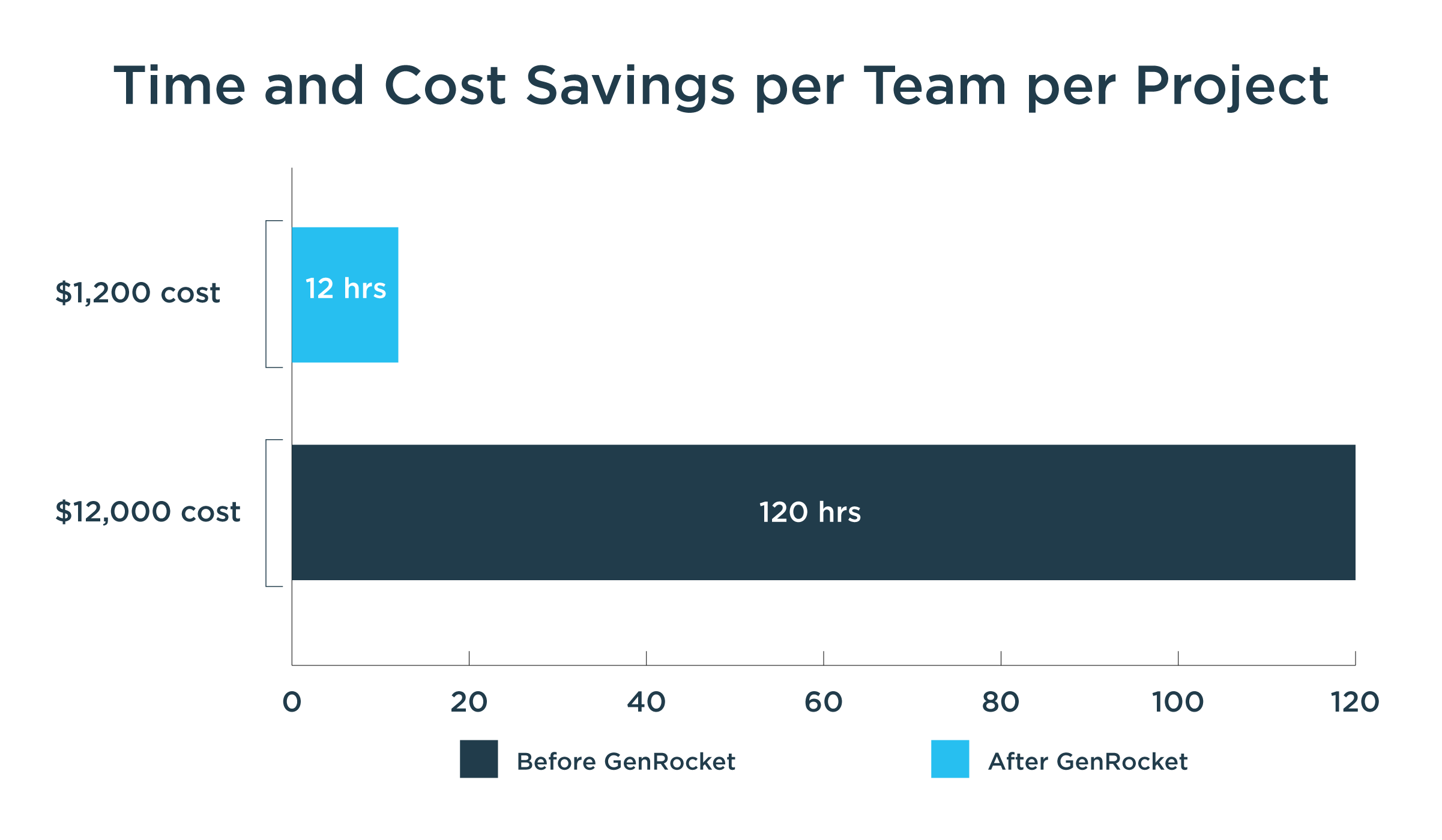
Compliance Benefits
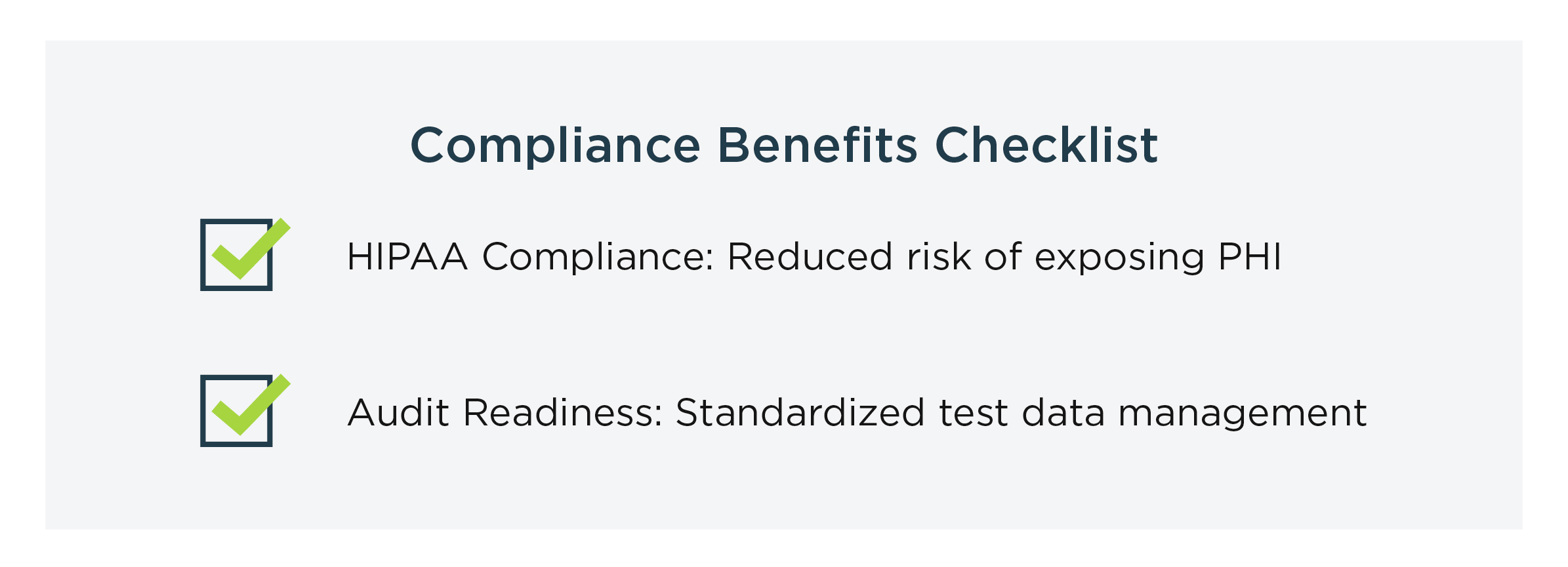
The use of GenRocket’s synthetic data generation significantly enhanced the organization’s compliance with healthcare regulations:
- HIPAA Compliance: By eliminating the need for production data in testing environments, the risk of exposing Protected Health Information (PHI) was drastically reduced.
- Audit Readiness: The standardized process for test data management improved the organization’s ability to demonstrate compliance during audits.
Scalability and Future-Proofing
GenRocket’s solution demonstrated impressive scalability:
- The system easily scaled from generating thousands to millions of records without significant performance degradation.
- The flexible data modeling allowed for quick adaptation to new requirements and system changes.
- The solution’s ability to integrate with various testing tools positions it well for future expansions and upgrades.
Return on Investment
The total ROI was significant, with cost savings of up to $740,000 annually—$240,000 from reduced manual effort and an estimated $500,000 from earlier defect detection.
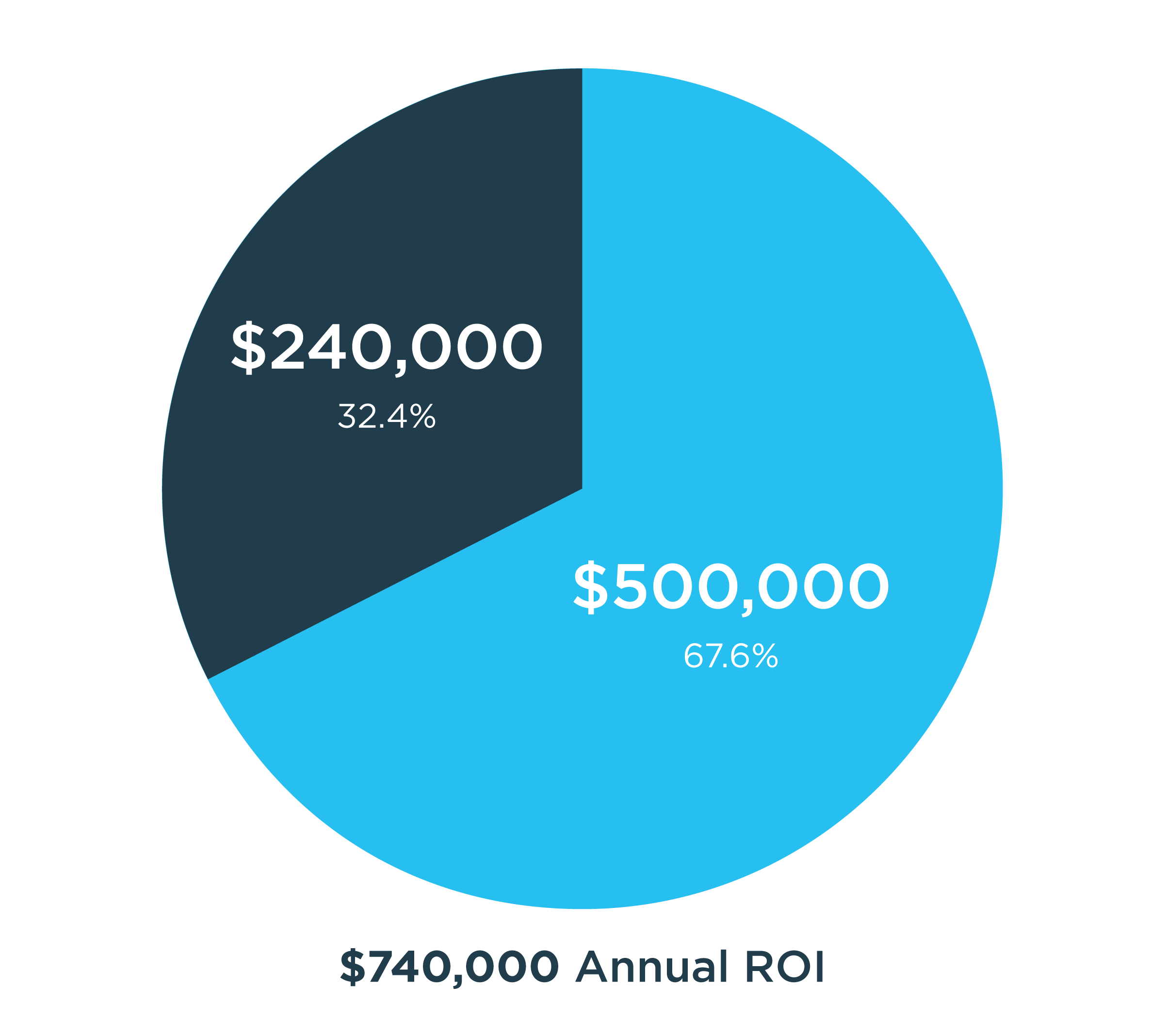
Future Innovations & Expansion
The success of this project has led the healthcare diagnostics provider to expand their use of GenRocket across multiple applications and testing scenarios. Future plans include:
- Integrating GenRocket with other testing tools in their CI/CD pipeline to further automate and streamline testing processes.
- Exploring the use of AI-generated test data in combination with GenRocket’s synthetic data capabilities to create even more realistic and complex test scenarios.
- Extending the use of synthetic data to support data science initiatives and machine learning model testing, leveraging GenRocket’s ability to generate edge cases and rare event data.
